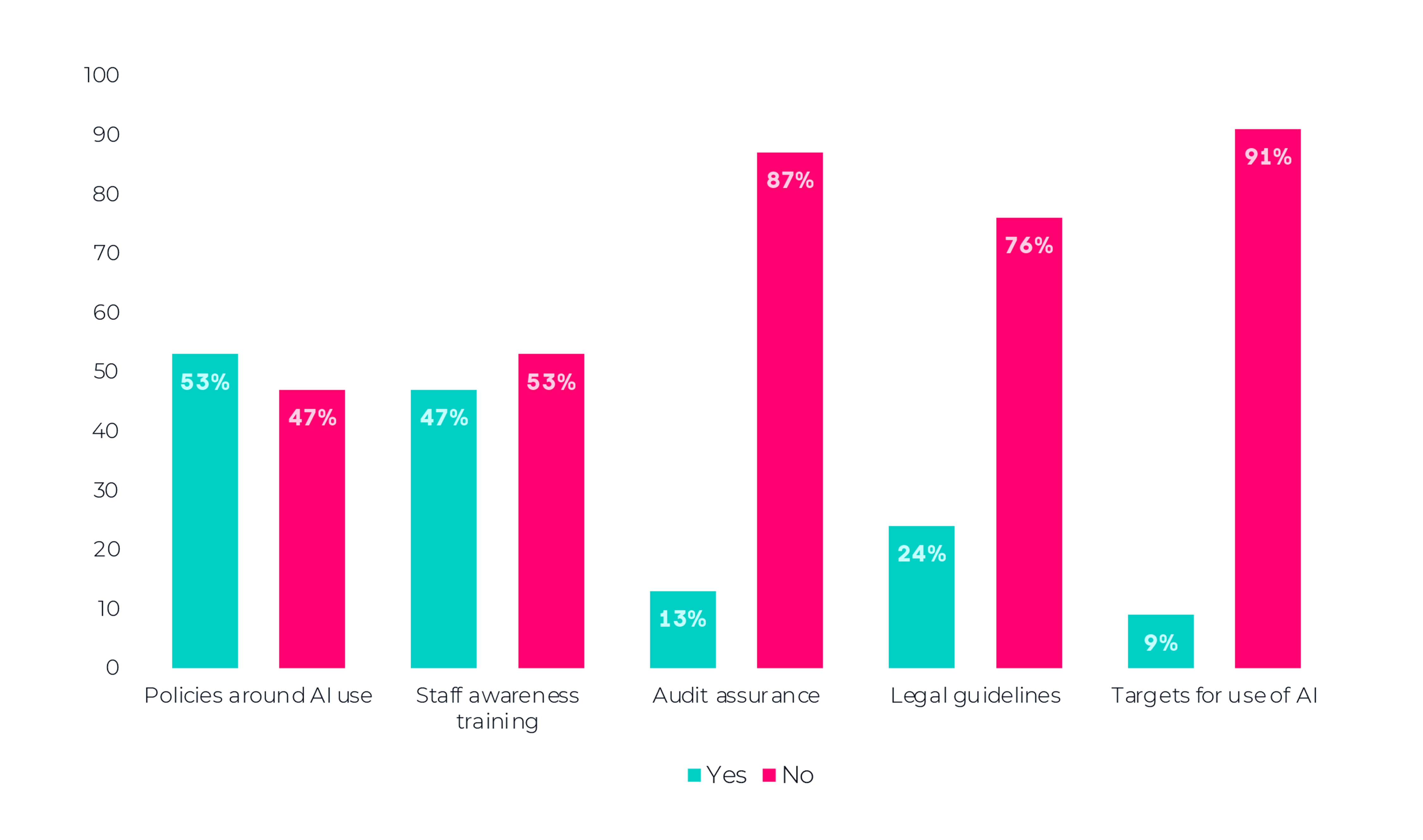Uptake of Artificial Intelligence (AI) by New Zealand organisations shows an almost 50-50 split with 48% claiming they currently use some form of AI in their business and 49% yet to adopt any form of AI.
Sentiment among business leaders is skewed more favourably towards AI, with 47% describing their personal views on AI as “It’s exciting, I support it” and 35% stating “I don’t know much about AI but am keen to learn more”.
Just 2% of business leaders described their personal views as being “not interested in AI at all/don’t support it” and 17% responded “I know about AI but am not interested in finding out more”.
“AI is not new but the hype around generative AI tools like ChatGPT and DALL-E has seen more widespread discussion about AI as a tool and the potential economic and productivity gains it could help achieve,” says Managing Director for Datacom’s Technology Services, Justin Gray.
“With this survey we were interested in understanding rates of adoption of AI, but also how the potential risks are being managed alongside the opportunities.”

Despite adoption of AI among NZ companies reaching nearly 50%, the survey identified gaps in usage and legal guidelines for AI and in understanding the security risks and implications of AI.
Six in ten business leaders said they do not feel well educated on the risks of AI from a security standpoint, compared to just 36% stating they were comfortable they understood the security risks.
Policies around AI usage had been implemented by just 53% of respondents. While this figure arguably lines up with the 48% of businesses that are using some form of AI, Datacom Group CIO and CISO, Karl Wright, says it overlooks the fact that employees are likely using publicly available online AI tools, such as ChatGPT, as a work tool and organisations need to be proactive about setting policies to manage associated risks around business data, IP and copyright issues.
“The use of AI needs to be carefully considered, monitored and governed with clear policies and guidelines in place to ensure the risks to business are minimised. It almost requires the same approach as cybersecurity – clear policies and procedures to minimise risk, employee and user training to ensure they understand the role they play in protecting data, and regular audits,” says Wright.

Only 24% of respondents said they had legal guidelines in place for use of AI and just 13% had audit assurance. Survey results showed that organisations with “targets for use” – for example a specific use case or strategy around what the business hopes to achieve using AI – were even lower with just 9% of respondents identifying their business as having these in place.
Datacom’s Associate Director Future & Insights, Tracey Cotter-Martin, says the most common questions her team hears from customers are focused on the purpose of AI and how businesses "should" be using it.
“We want people to understand that AI shouldn’t be viewed as something that sits outside your business or as a tech add-on. How you apply AI and its purpose should be determined by your business goals. AI has incredible optimisation capability that can be used to supercharge your strategy by introducing pace, creating adaptability, allowing you to identify differentiation opportunities or to pinpoint risk, but it is only effective if you understand the problem you are trying to solve. AI can't define your problem statement for you.”
“At Datacom we talk about technology as a force for good that can be used to respond to people’s needs and help them address challenges, and that needs to be the starting point for the adoption of AI.”
Cotter-Martin says some of the basic applications of generative AI that have been in use for years, such as chatbots, show the opportunity for AI to create optimised experiences.
“As AI becomes more adaptive, more intuitive, we need to focus on how to apply its potential in meaningful ways that are in line with the ambitions we have for our businesses and for our communities.”
An overwhelming majority of respondents (82%) felt that government needed to introduce specific legislation relating to the use of AI within government and/or the public sector. The caveat to this, according to Wright, is that any legislation needed to be “progressive and able to adapt at speed given the nature of AI”.
Respondents were also asked to rank their key concerns around AI use and the two highest concerns were identified as security (75%) and safety (73%), with safety concerns including “uncertainty around control or loss of control of AI”. Other areas of concern around AI use included ethics (53%), bias (50%) and unemployment (36%).
.jpg)
“AI offers significant opportunities to improve the way we work and to develop smart, adaptive solutions that meet the needs of our customers and communities, but organisations need to be mindful of issues like AI bias, and it is a positive that businesses are identifying these key concerns around the use of AI. AI can be used to increase inclusivity and equity, but without checks and balances, it has the potential to do the opposite,” says Gray.
Asked which industry has the potential to deliver the greatest benefits for society from AI use, 25% of respondents identified wholesale trade and 19% identified healthcare, followed by financial services (16%), administrative services (11%) and advertising and marketing (8%).
On the flip slide, respondents saw the greatest potential risks for society in the application of AI in advertising and marketing (20%), administrative services (15%) financial services (17%) and healthcare (9%).
Despite the varied answers around which sectors presented the greatest benefits and risks, respondents were clear that AI will bring significant changes – 81% of business leaders believe the integration of AI within New Zealand businesses will impact operations and workplace structures.
“Navigating the change is something that will require careful consideration, particularly given the pace at which this change is likely to occur,” notes Gray.
The Datacom-commissioned survey was conducted in July 2023 by Curia Market Research.

